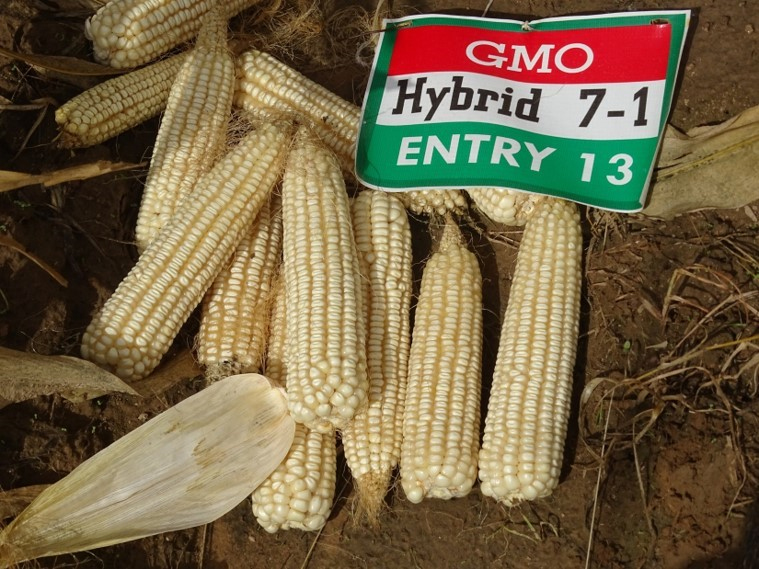Determined to improved maize production in Nigeria, the Institute for Agricultural Research (IAR), Ahmadu Bello University, Zaria, in collaboration with African Agricultural Technology Foundation, (AATF) will soon release Tela maize, a new variety crop in Nigeria.
The new Tela Maize, first Genetically Modified Organisms GMO, fortified to resist pest and tolerate drought, is expected to be released to farmers by 2022.
With the adoption of the new technology in 2019, Nigeria now joined six African countries including Kenya, Uganda, Tanzania, Ethiopia, Mozambique and South Africa, where the Tela maize is currently being developed to improve farmer’s production on the continent.
With the increasing population of over 200 million, Nigeria required about 20 million metric tonnes of maize to augment its local consumption. Nigeria remained the largest producer of maize in Africa, with an annual production of 18 million metric tonnes in 20219, but relies largely on maize importation to fill the existing gap, available data had shown.
Scientists, however, opined that Nigeria required full adaptability of biotechnologies to scale through the increasing demand of maize and save the country’s foreign exchange being expended on implementation.
Besides the extensive research on 56 improved maize varieties so far released, the Institute for Agricultural Research (IAR) is taken the lead with support from AATF in Nigeria to produce GMO Tela maize.
Executive Director, IAR, Prof. Mohammed Ishiyaku the intervention will greatly enhance the food security agenda of the present administration amidst the challenges posed by climate change.
Addressing journalists during a two-day capacity building workshop on effective
communication and reporting techniques of Tela Maize held in Kano, Prof. Ishiyaku explained that the new solution became important to boost the country’s revenue in the non-oil sector of the economy.
According to him, Tela maize is being developed by genetically engineered systems to enhance reduce the cost of production associated with the use of pesticides and herbicides and tolerate atmospheric condition with little or no waterfall.
Represented by the project Principal Investigator, Prof. Rabiu Adamu, the IAR boss explained that Nigeria lost about 80 per cent of maize production annually to the devastating impact of biotic and abiotic agents including armyworm and droughts.
“The new maize variety would standout particularly during droughts and pest outbreaks. The GMO crop will be protected from the hazards compared to other less fortified varieties which will be devastated. The research on Tela Maize is a home-grown being undertaken by Nigerian scientists to develop and implement effective strategy for environmental release,” Adamu said.
“Africa currently produces 7.5 per cent of the world’s maize out while Nigeria is currently responsible for the largest produces in the continent with 18 million metric tonnes in 2019 from 11 million metric tonnes in 2018. It is estimated that demand for maize will double by 2025.
“While the production of maize will double by 2050, an average yield of the regular maize crop is currently about two tonnes per hectare when the urgent need is put at about five tonnes per hectare to meet up with demand. Yet we are facing challenges of stem borer, a major maize disease had been found to reduce maize yields by between 13 per cent and 18 per cent.”
Communication expert with AATF, Alex Abutu, who stressed the significance of effective communication strategy, explained the workshop was organised to avail journalists with the Tela maize project in Nigeria.
Abutu, who identified the crucial role of the media in information dissemination to a broader audience, said that participants were carefully selected to effectively create awareness and education public on the gains of Tela maize in the country.
SOURCE: THE GUARDIAN NIGERIA



















































































